DT Swiss abandons steel spokes in its flagship climbing wheels; Enve drops a cheaper bar; and Colnago expands it's steel frame range in a topsy turvy round up of the week's tech
All change this week with DT Swiss abandoning it's own flagship spoke in favour of carbon, and Enve hints at improved supply chain with a move to a new factory for it's latest bar, plus new gadgets from Topeak
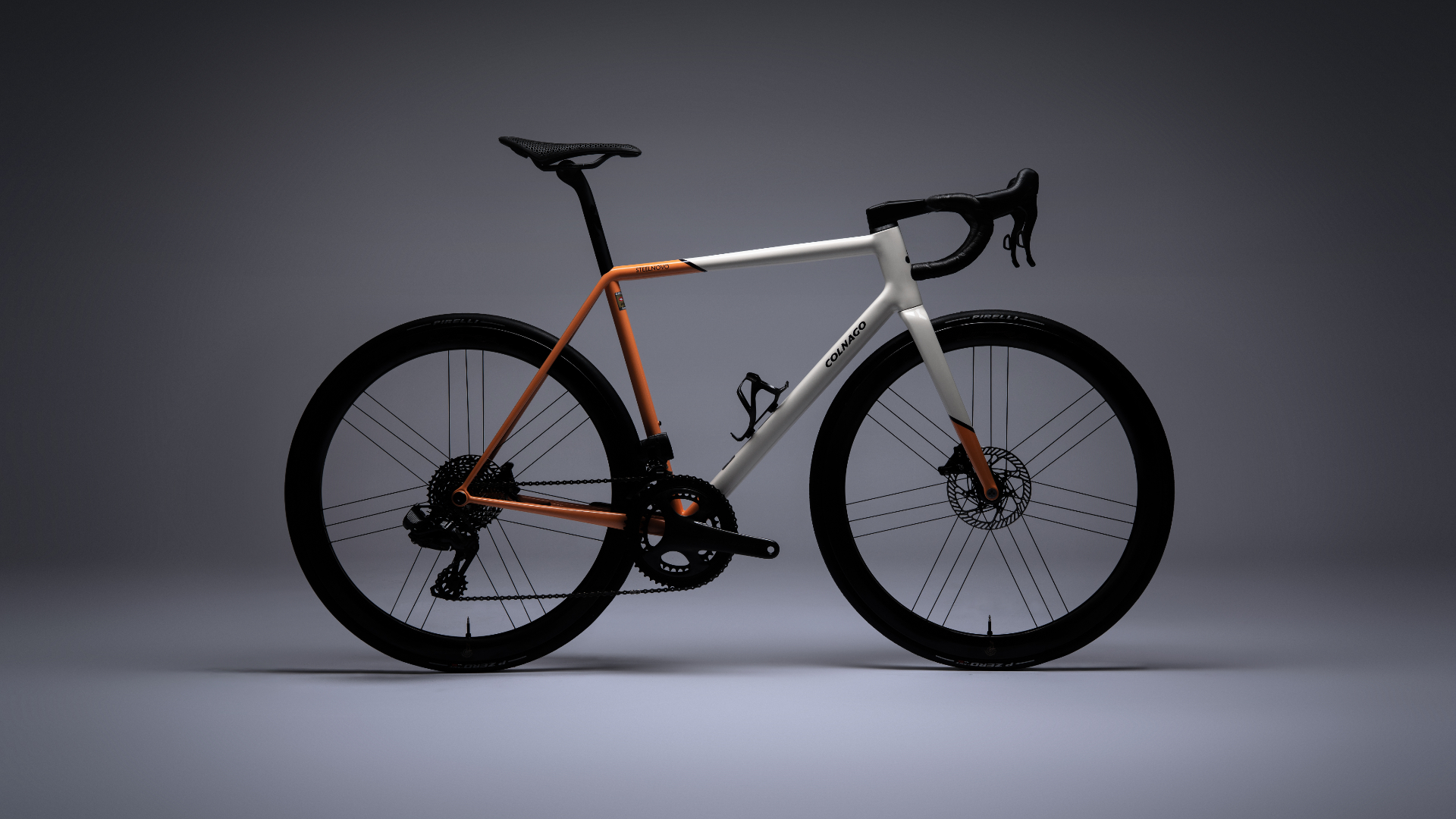
The latest race content, interviews, features, reviews and expert buying guides, direct to your inbox!
You are now subscribed
Your newsletter sign-up was successful
While steel and carbon might seemingly sit at the ends of the spectrum when it comes to materials used in bike frames and components, they really are just bedfellows. It's all about how they are used, rather than any inherent properties, that defines their performance; steel frames are famed for their liveliness and comfort, but this only achieved by matching quality tubing with an effective design. Similarly carbon is heralded for its light yet stiff properties but without a thoughtful application these attributes are wasted.
Which brings me on to our headliners this week. We have a steel bike from Colnago, a set of climbing wheels with carbon spokes, and a thoroughly modern race bike that's doffing its cap to the first carbon bike to win le tour. All three showcase said materials and their ability to blend performance with desirability, a marketing person's dream.
Colnago Steelnovo
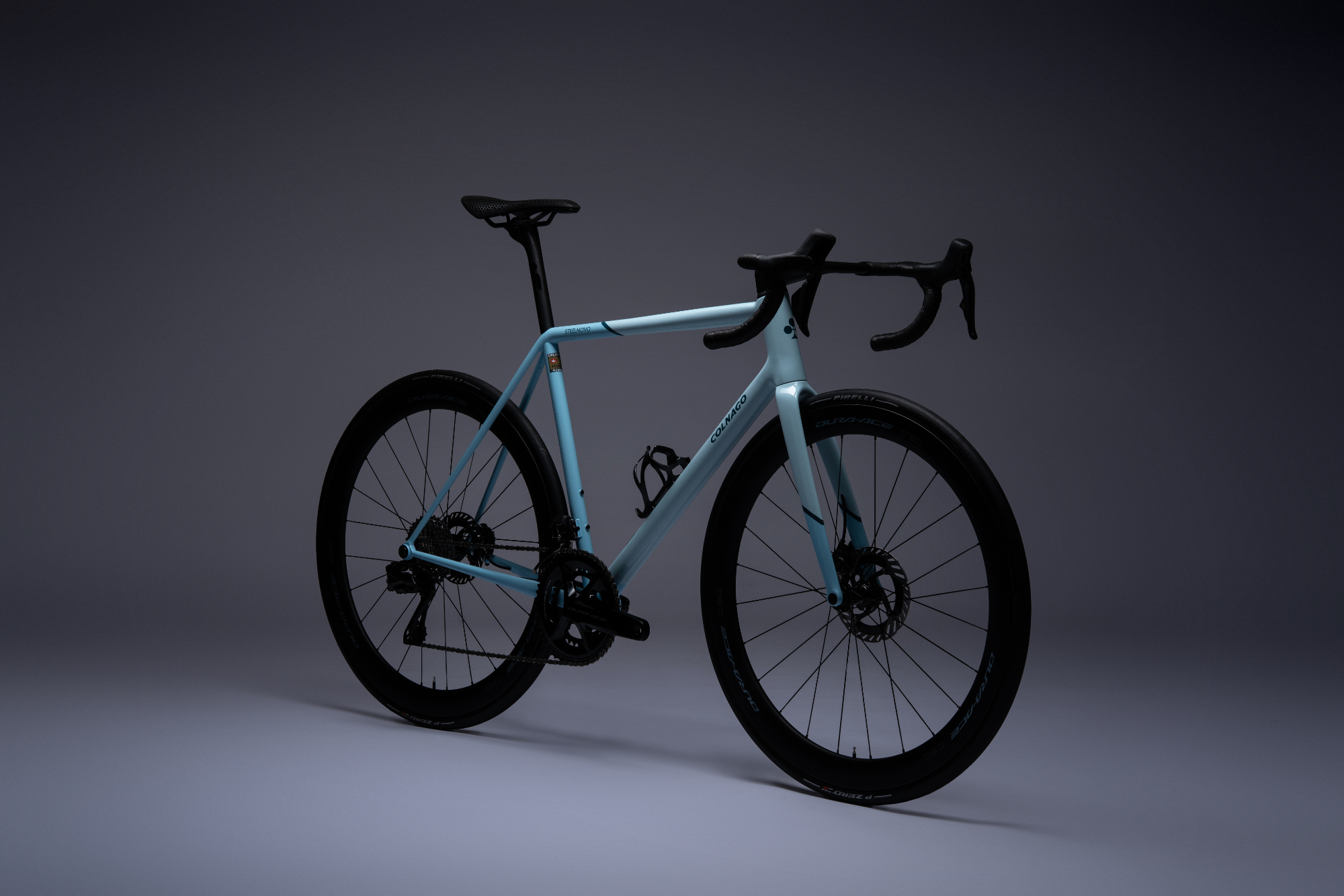
The Steelnovo was first released to celebrate Colnago’s 70th anniversary. Showcasing both the brand’s heritage and its framebuilding expertise, the limited-edition model (70 made), was as beautiful as it was expensive.
While the exclusivity of both availability and price likely added to its appeal for some, Colnago has decided to offer the Steelnovo in a slightly more accessible and affordable guise; this time around the frame retails at $6,250 and is limited to 400 pieces.
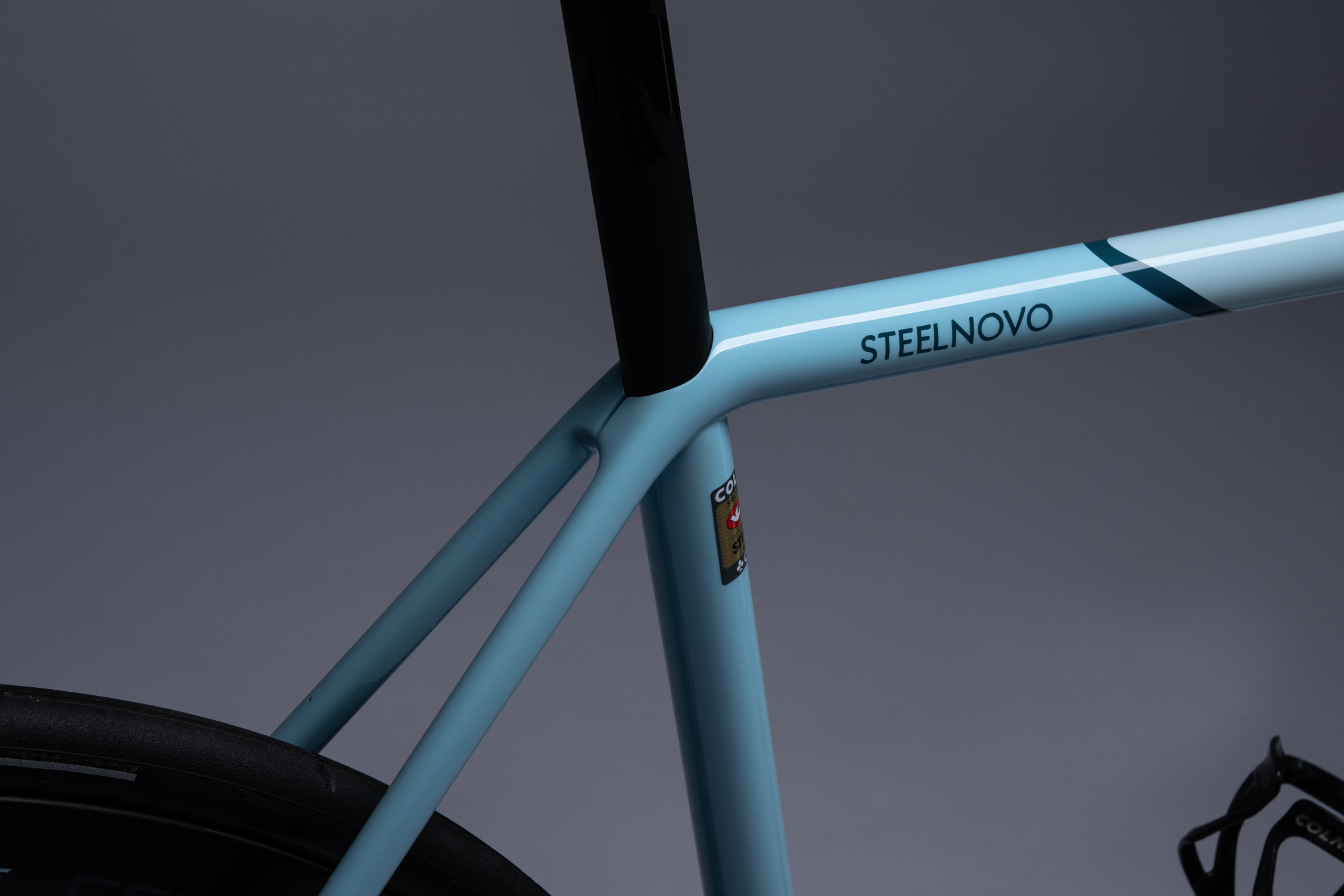
It’s debuting in two colorways - a light blue and a pastel orange - and like the original is made entirely in Italy from a blend of Columbus tubing and 3D-printed components, all blended together with impressively seamless welds. And clearly it’s a bike to be ridden now and into the future; it boasts clearance for 35mm wide tyres and uses the T47 BB and UDH standards.
DT Swiss ARC 1100 Spline 38 CS
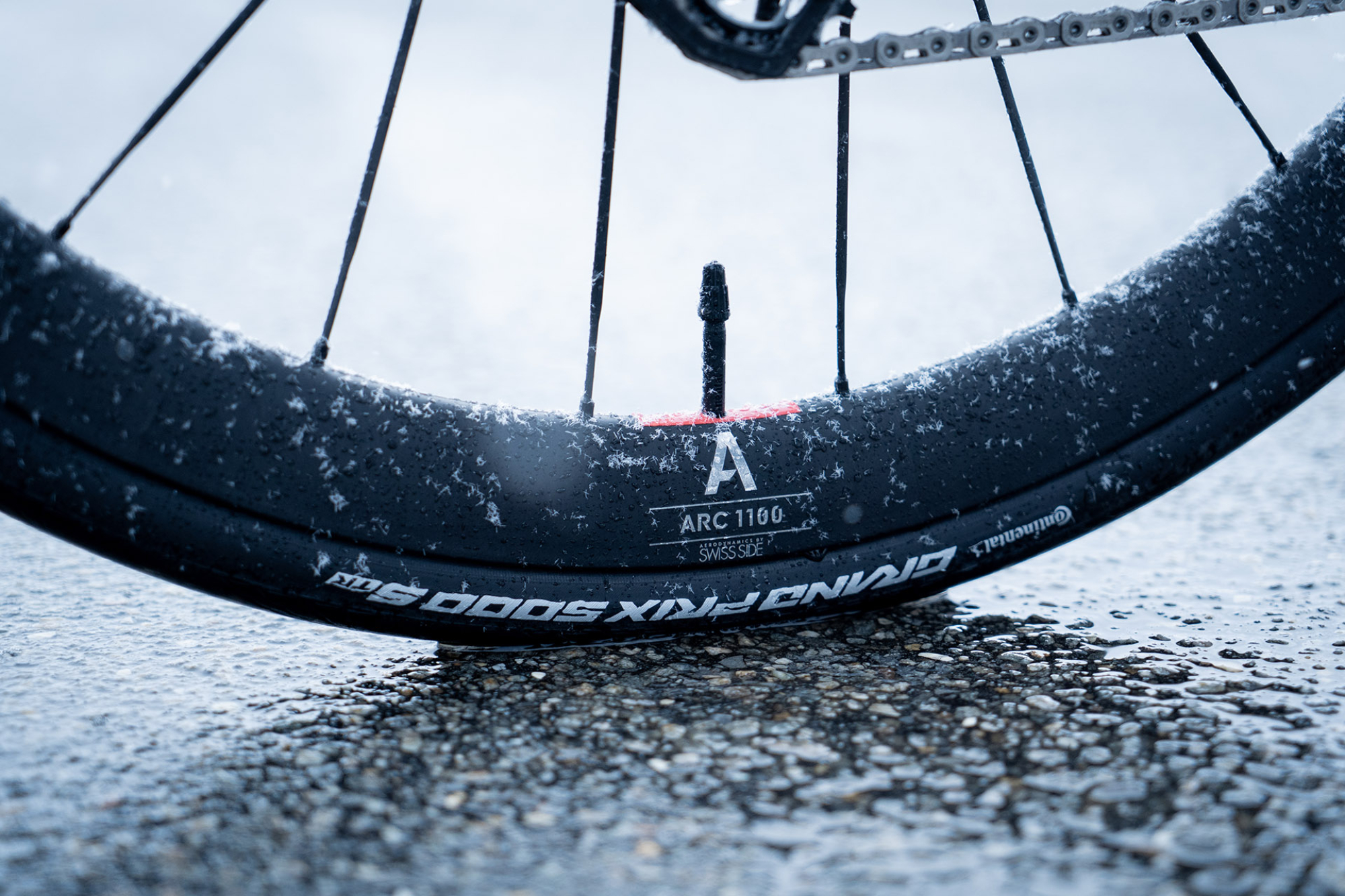
At first glance the DT Swiss ARC 1100s look like just another pair of high-end lightweight carbon wheels. And, to some degree, they are. Built for climbing the 38mm deep hoops weigh less than 1,200g for the pair. But it’s how DT Swiss attained such a weight that makes them interesting. It’s the spokes.
DT Swiss’ Aerolite steel spokes have been the standard for some time, used not just on its own wheels but on numerous sets from other manufacturers, too. But in the pursuit of the lightest possible wheel there has been a clear shift to carbon spokes, leaving DT Swiss as something of an outlier. Until now.
The latest race content, interviews, features, reviews and expert buying guides, direct to your inbox!

There’s a rational argument for why steel trumps carbon as the best material for spokes, and it’s likely one that kept DT Swiss from making the switch in its lightest wheelsets.
There’s also a counter argument that it simply had to, given that all its nearest rivals had made the jump some time ago. We’re hoping to get a pair of the wheels in to test.
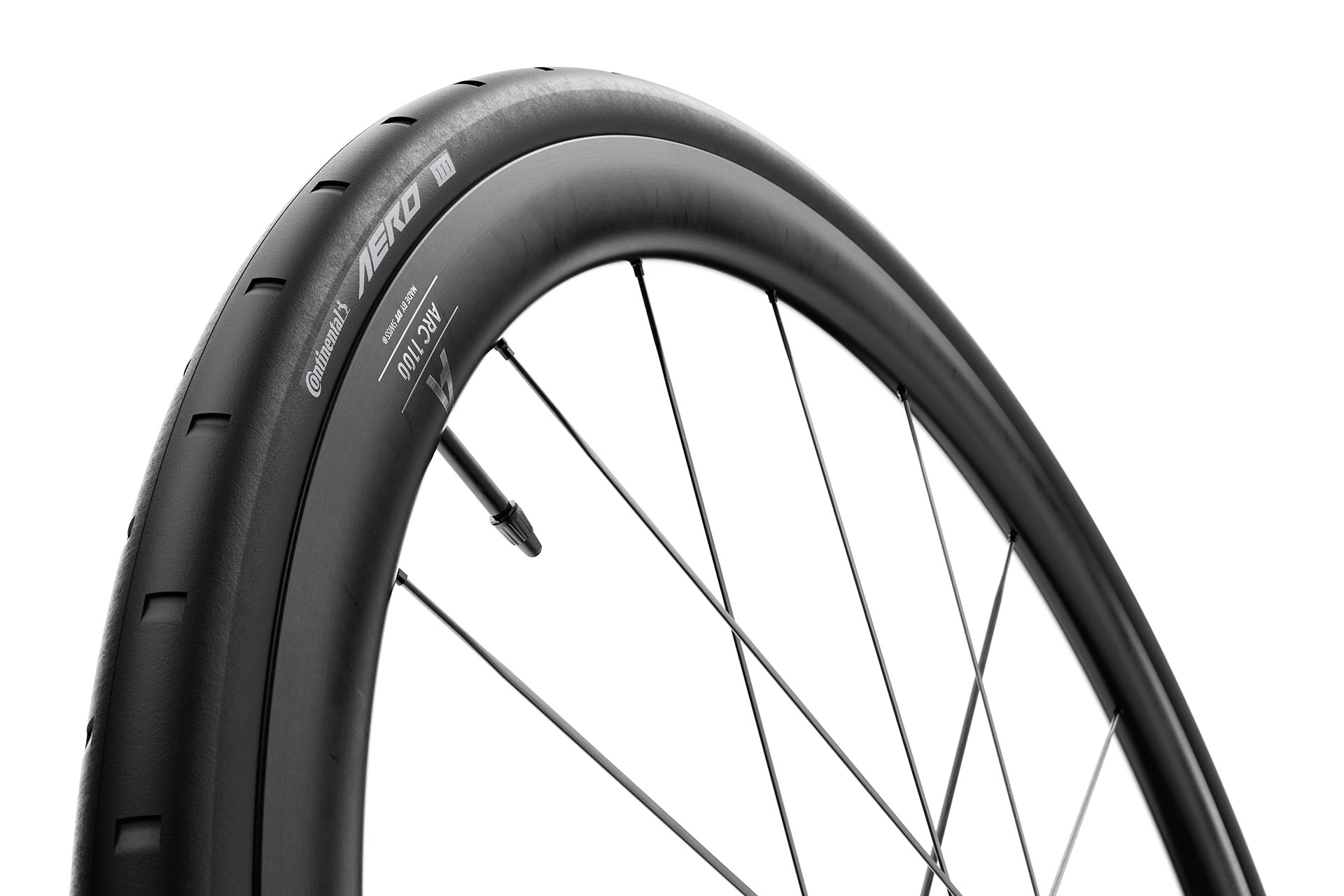
Until then, here’s the details: the hand-built wheels feature an aero optimised 38mm deep rim with a 20mm internal rim measurement, designed with the help of aero experts Swiss Side. There are 24 of the carbon spokes at the rear, and 18 at the front, laced in a new spoke pattern to the brand’s superb 180 hub; here it’s been specifically made for the switch to carbon spokes, with refined flanges.
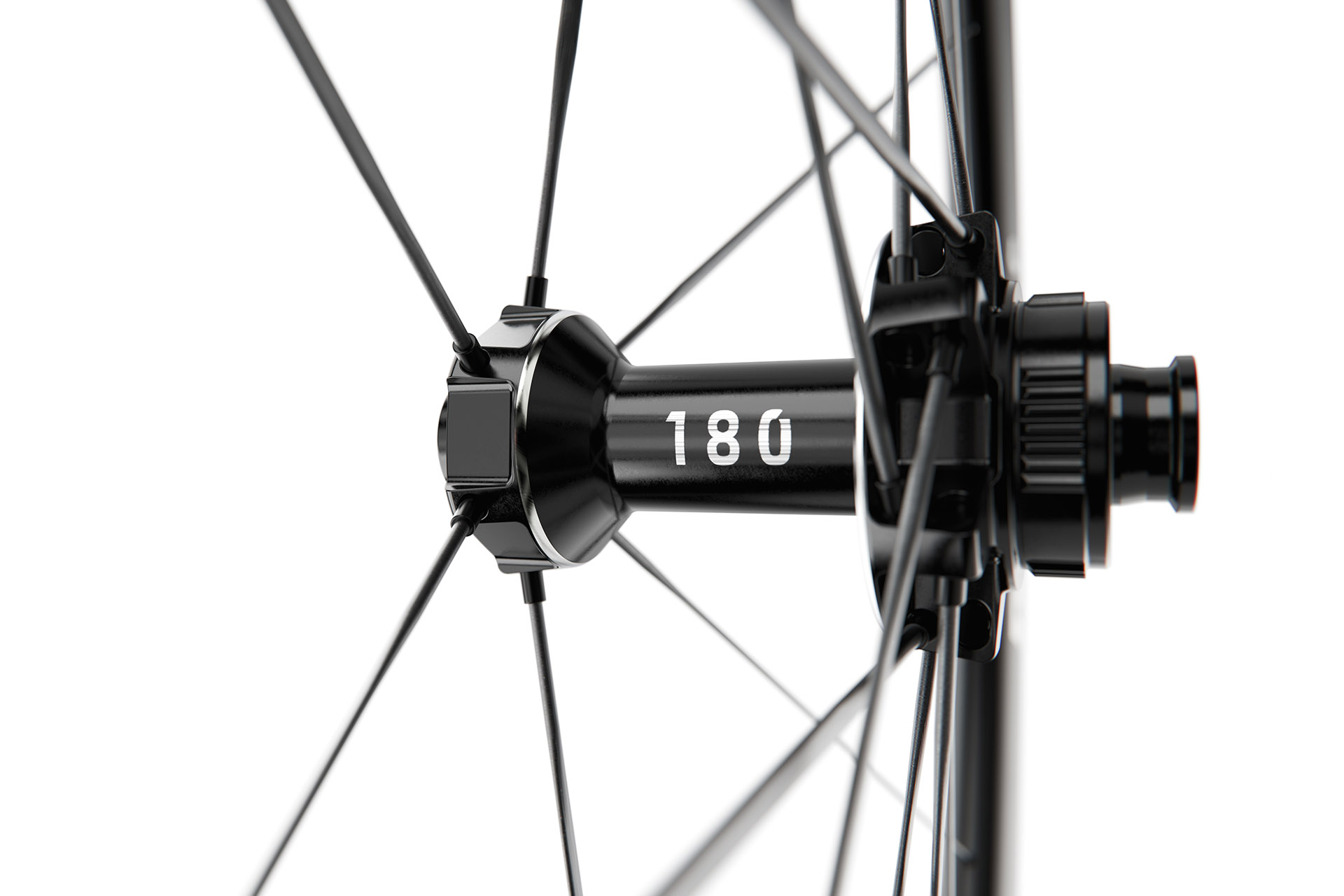
The ARC 1100s have been built around a specific tyre combination designed to make the wheel/tyre combo the fastest possible when climbing; DT Swiss are recommending a Continental Aero 111 in a 26mm width at the front and a 28mm GP 5000 STR on the rear. This, according to the brand, offers an “optimal combination of speed and grip, for fast ascents as well as descents in confidence”.
The DT Swiss ARC 1100 Spline 38 CS are priced at £2,899 / $3,727.
Look 795 Blade RS KG Edition
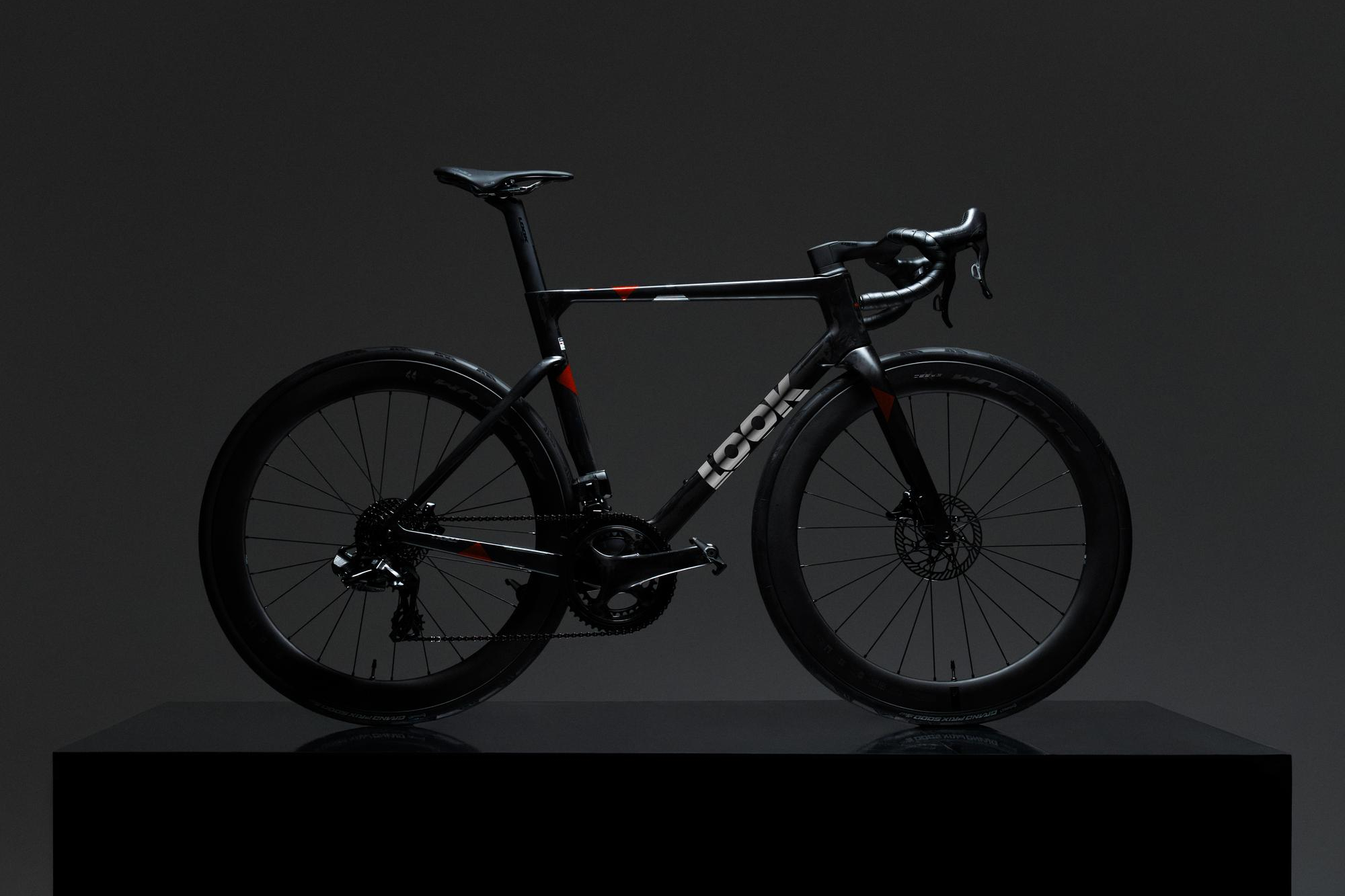
The 1986 edition of the Tour de France was certainly an historic race. Not only did Greg LeMond become the first winner from outside of Europe, he did so riding a carbon frame, another first. And now that frame, the Look KG68, is being celebrated by the French marque in the shape of the 795 Blade RS KG.
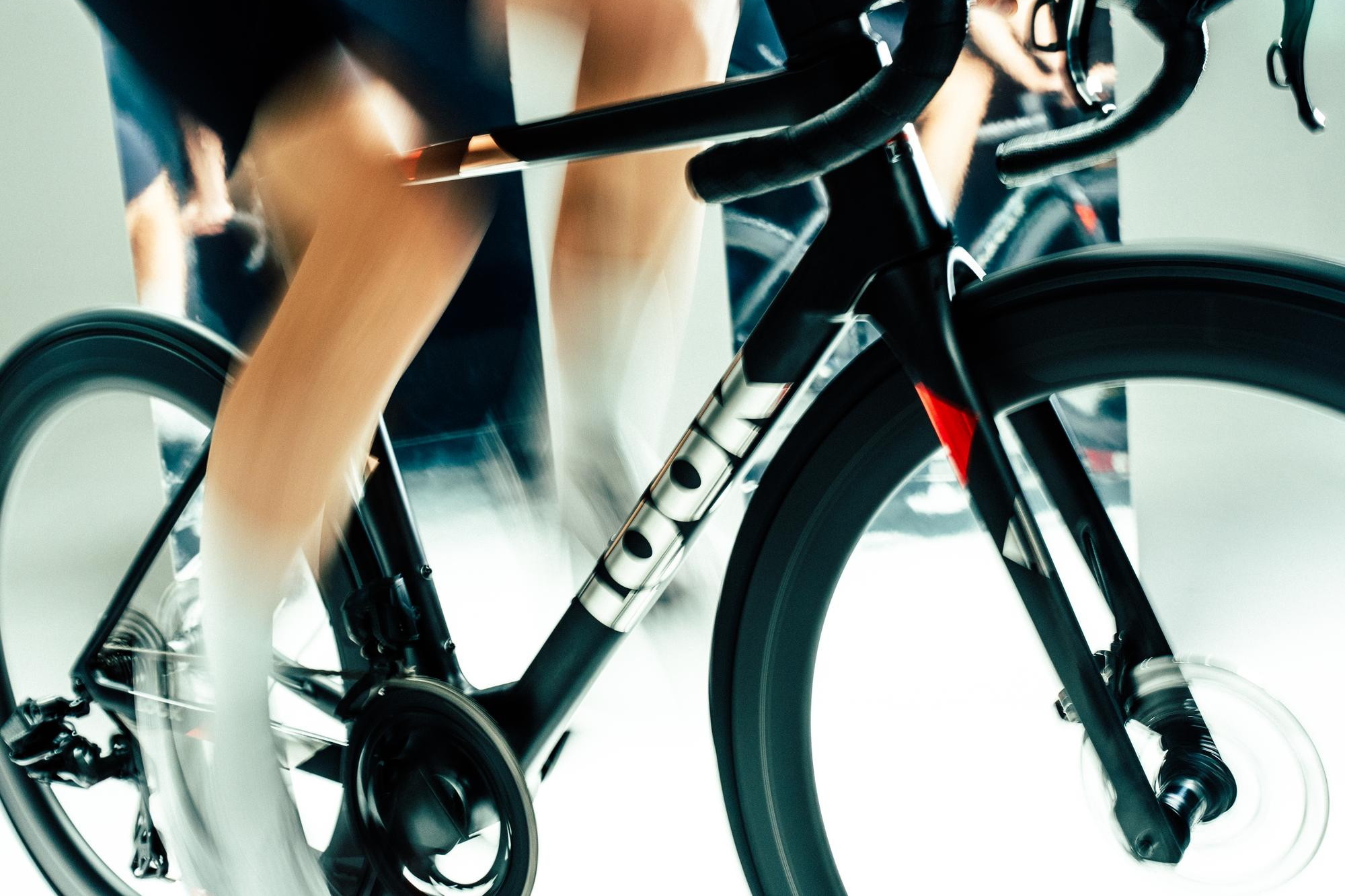
Forty years separates the two bikes, and while much has changed, some things remain the same. At the time the KG68 was as innovative as it gets, with the monocoque carbon and Kevlar tubes bonded into aluminum lugs, making its steel counterparts look positively medieval by comparison. LeMond’s complete bike weighed less than 9kg, ridiculously light for the time.
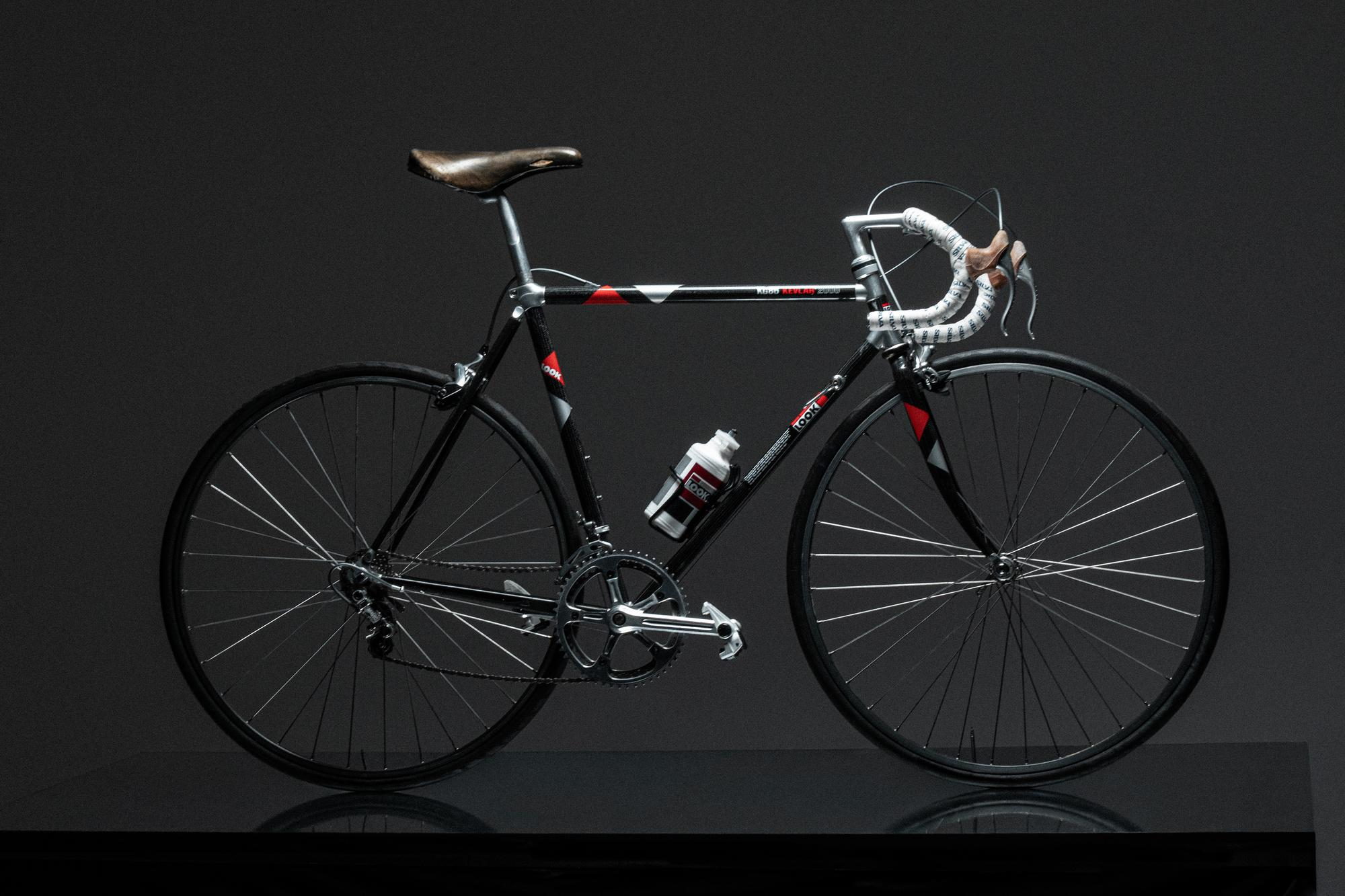
The 795 Blade RS is just as progressive, showcasing today’s technical and manufacturing prowess that allows for such a stiff, light and aerodynamically efficient race bike. The lineage is clear, and Look has doffed its cap to both the KG68 and LeMond’s achievements on it by decking out the 795 Blade in artwork that reflects the revolutionary original, using tri-colour motifs, silver accents and a raw carbon finish.
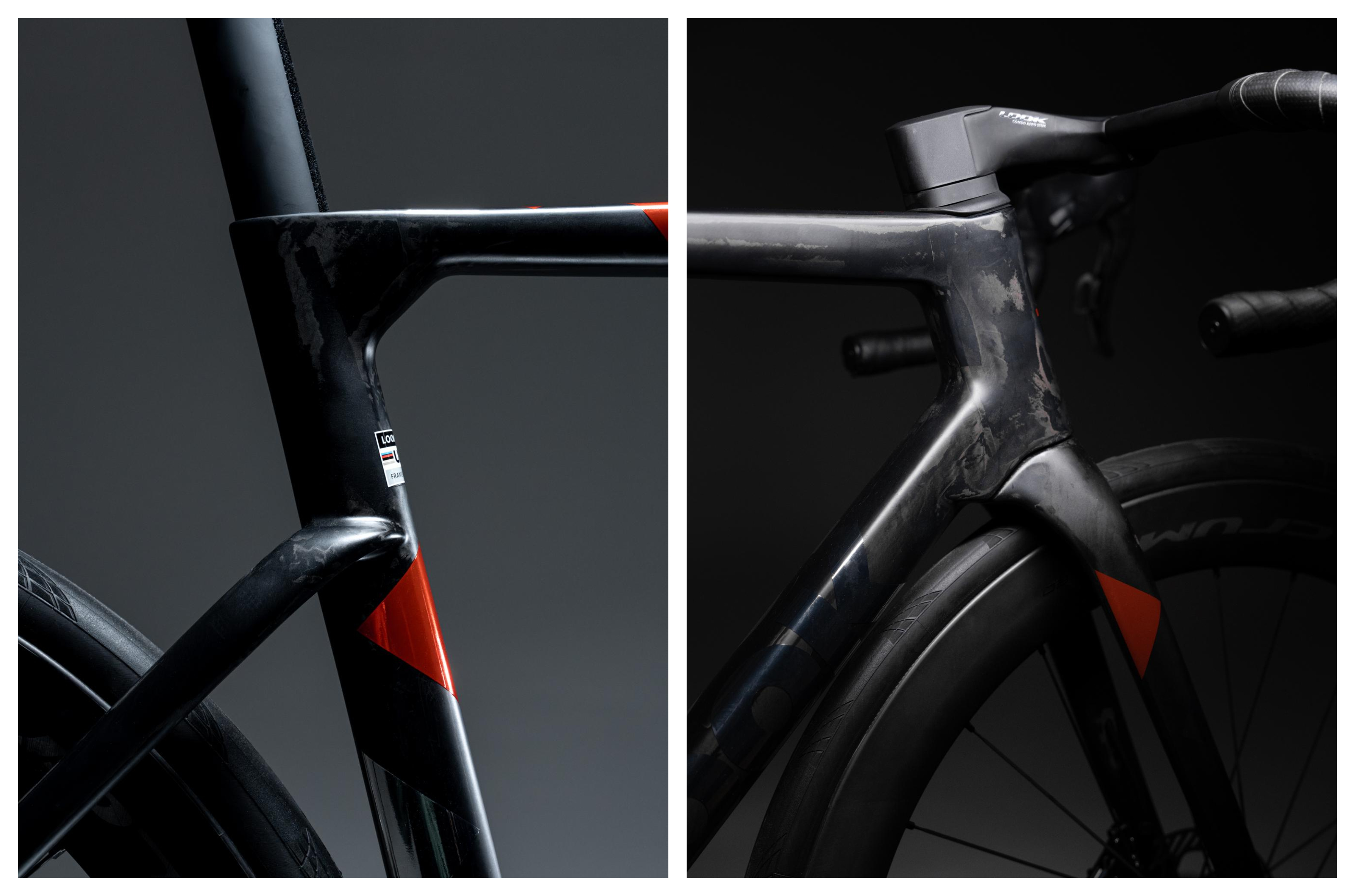
It’s available as both a frameset and a complete bike. The frame retails at £4,600 / $5,800, while builds start from £7,970 / $10,700.
Both the old and new version were on display at Rouleur Live this weekend.
Santini winter jackets
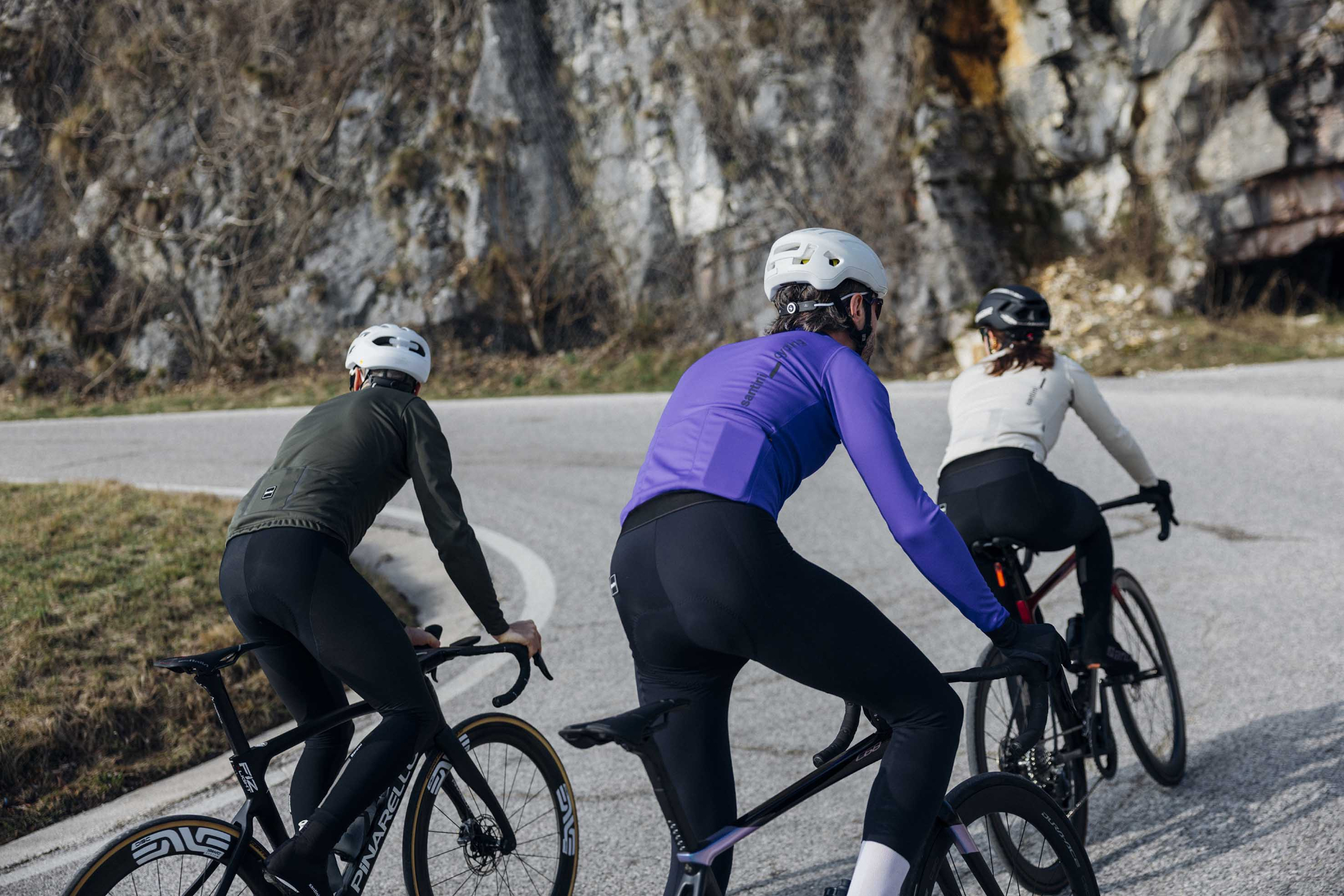
It wouldn’t be a November tech roundup without some winter kit and fortunately Santini is able to oblige. The Italian brand has released a number of jackets that showcase Polartec fabrics, all designed to protect you from the seasonal elements.
First up is the Pro All-Weather jacket that uses Powertec Power Shield. The PFAS-free fabric is both waterproof and breathable as well as being made from 48% plant-based materials. It combines here with a slim fit and a double zipper, alongside a waterproof rear pocket and reflective details on the shoulder.
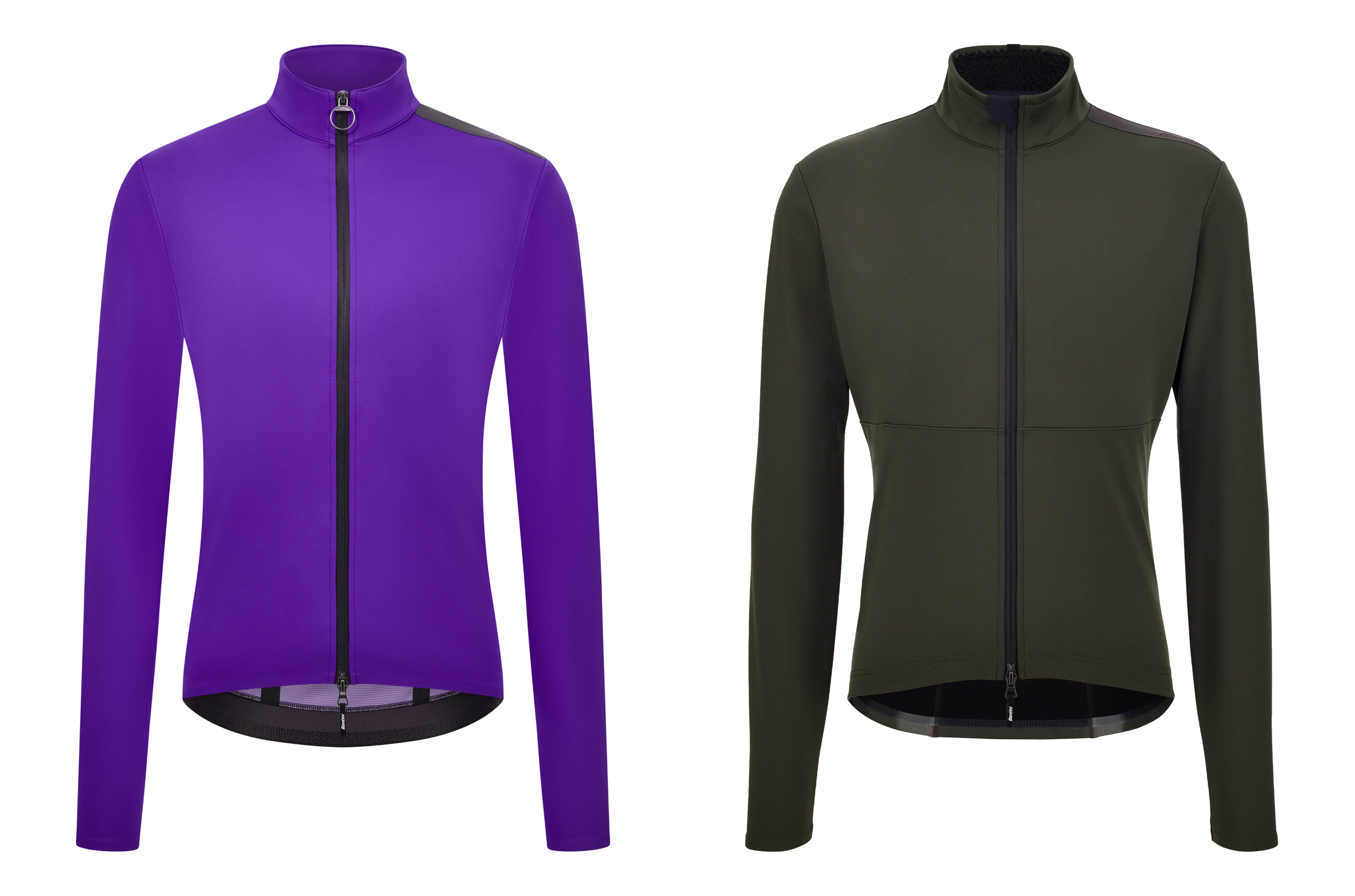
Then there’s the Thermo Jacket which is made from Polartec’s Power Wool fabric, which blends the properties of wool with synthetic fibres. Santini says it results in a garment that’s soft and durable as well as being breathable. As such, it’s designed to work across a range of conditions and temperatures, from 5°–15°C. Details include windproof inserts and three rear pockets, with a cut that’s described as “aerodynamic”.
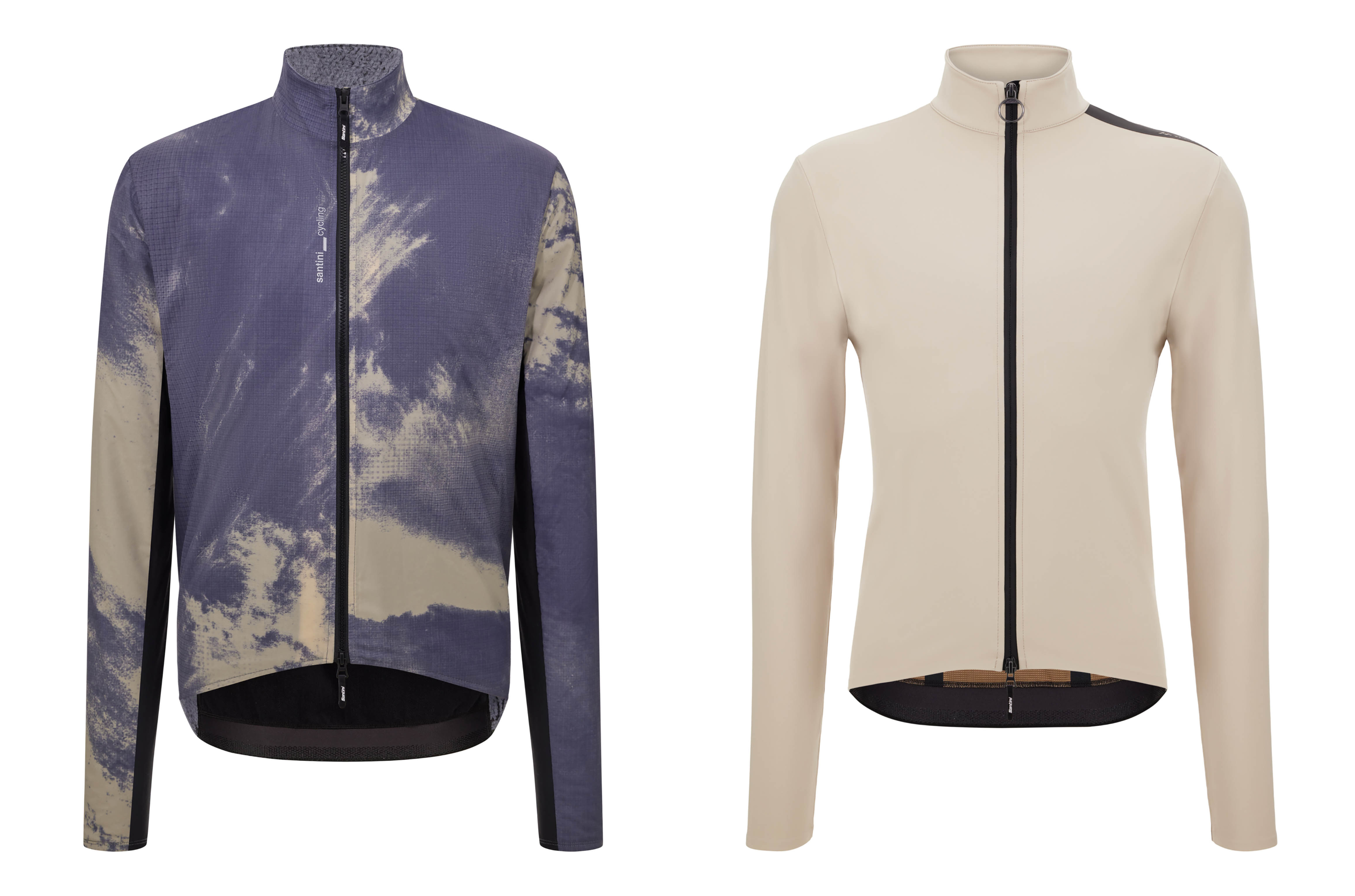
For the coldest conditions. Santini has given us another Themo jacket, but this time it's made with Polartec Windbloc and Alpha fabrics. The former is there to combat the wind and then rain, while the latter is used internally to aid moisture management.
Last, but likely not least, is the Insulated Jacket. It sees Polartec's Alpha and Power Wool team up, with Alpha used for insulation, while Power Wool panels on the back and underarms are designed to keep your body temperature regulated. Details include four rear pockets, an elasticated hem and reflective elements. It’s also offered in a gilet.
Topeak E-Booster Digital Mini pump
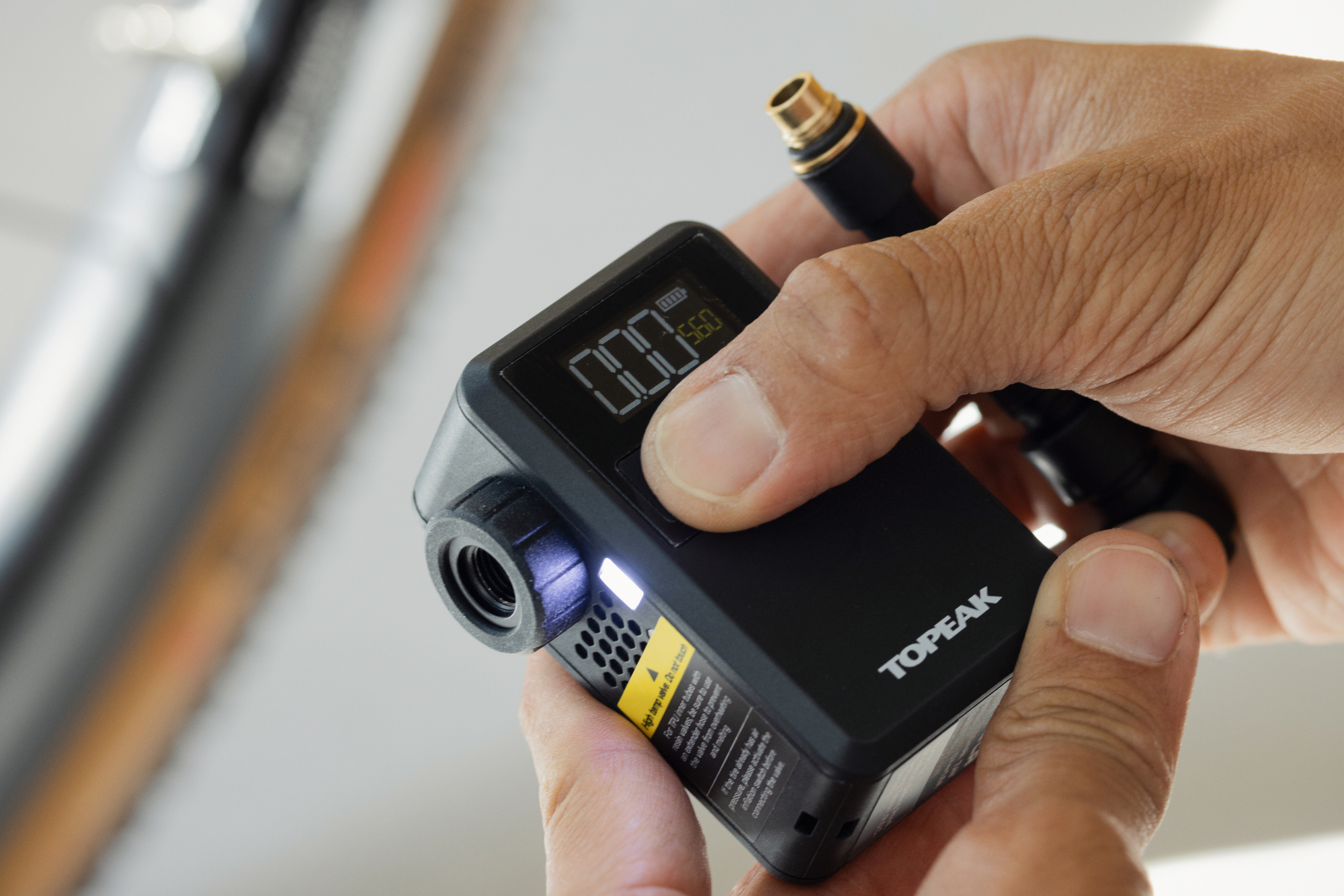
The march of the electric pump shows no sign of slowing down. We covered a few offerings in our handy guide to these devilishly efficient gadgets but new models are seemingly arriving with each passing day.
Topeak’s latest is the E-Booster Digital Mini. The clue to its key credentials is in the name; measuring 5.4 × 3.4 × 7.2 cm and weighing 120g, it’s designed to fit comfortably in a jersey pocket or saddlebag. However, despite its size it still features a full-colour LCD display, with readings in PSI, BAR or KG/CM² and a preset function that allows you to set your desired pressure.
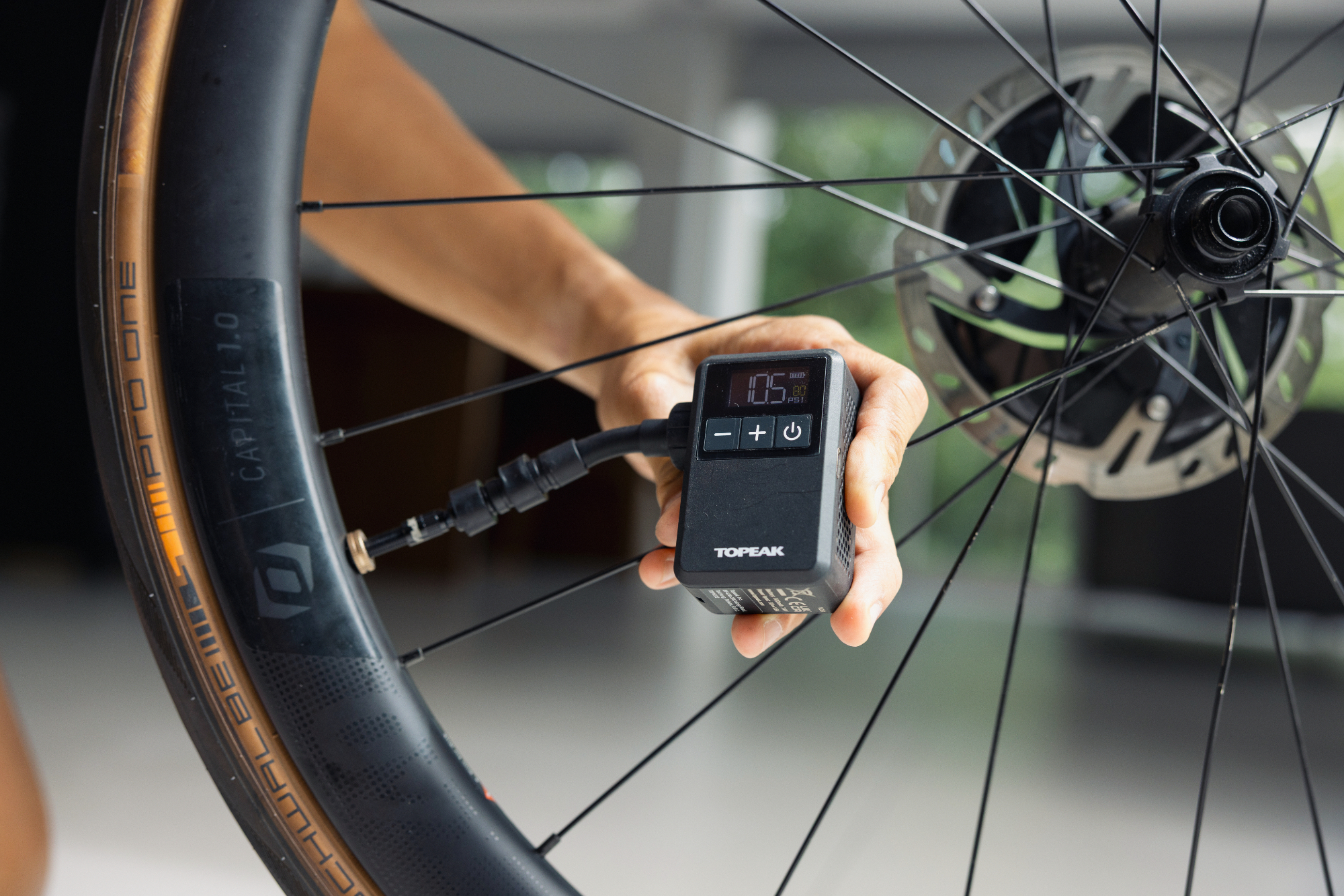
Using a 500mAh battery Topeak says it's good for six full inflations of a 700x40c tyre, which should be plenty for any ride unless you’re particularly unlucky. Other details include a weatherproof storage bag, a built-in LED flashlight and an extended hose, which is designed for use with TPU tubes; electric pumps can overheat and are not typically well-suited to the inner tubes with plastic valves. The E-Booster Digital Mini retails for £109.99.
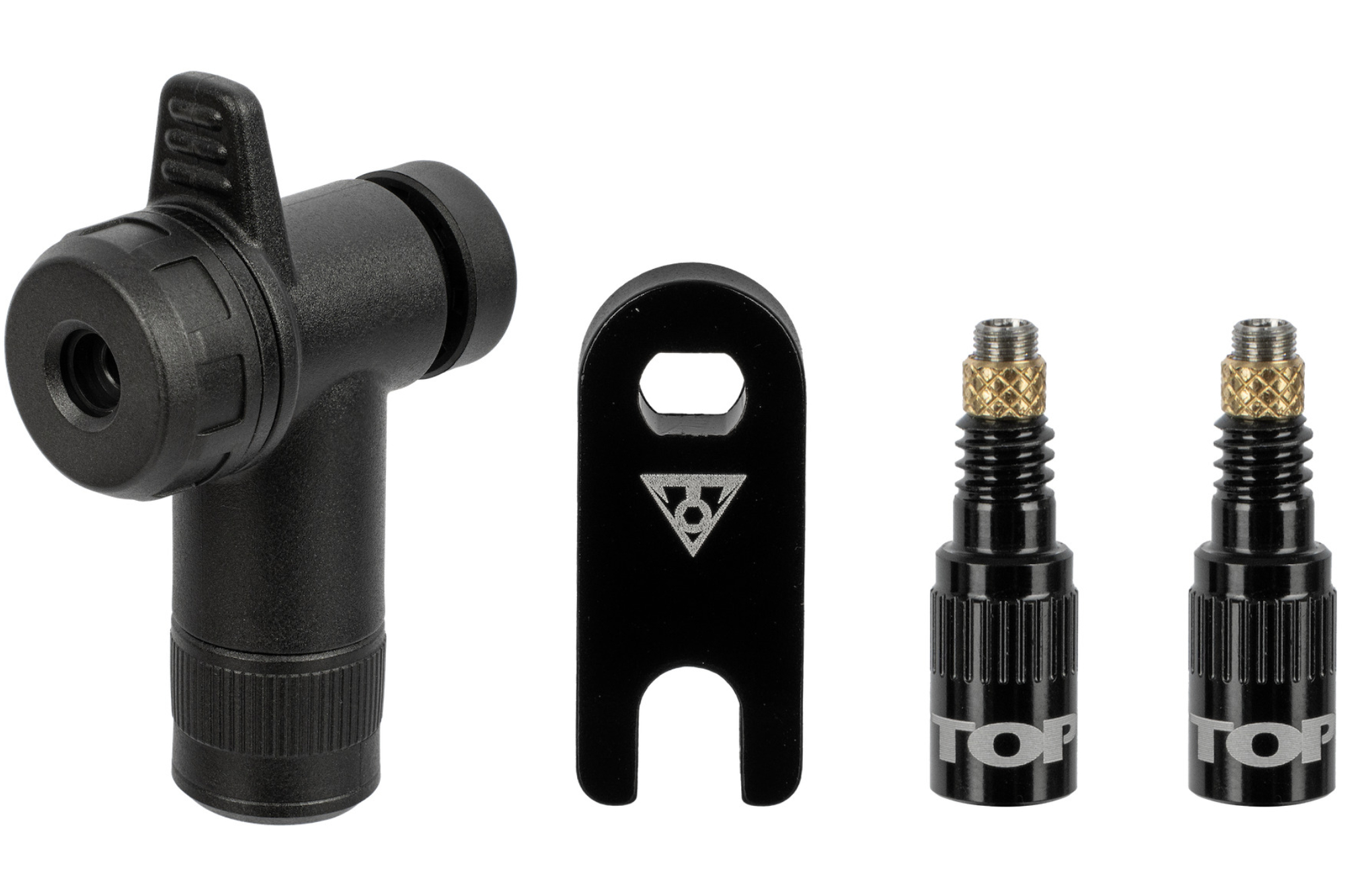
Topeak has also released a new TurboFlow range designed to improve tubeless tyre inflation; the technology delivers around three times the airflow of traditional valves. It comprises three sets: adaptors, a valve kit and the combo. The first of these converts existing presta valves to TurboFlow, while the kit contains everything you need for a full installation. Lastly, the Combo offers the valves alongside Topeak’s RapidHead, a pump head designed to work “seamlessly” with the TurboFlow valves; the pump head is said to be compatible with most floor pumps.
Pricing for the sets is as follows: Valve Kits are £34.99, the TurboFlow Valve Combo is £29.99, and the Presta Valve Adapters are £19.99.
Enve SES AR One-Piece Handlebar
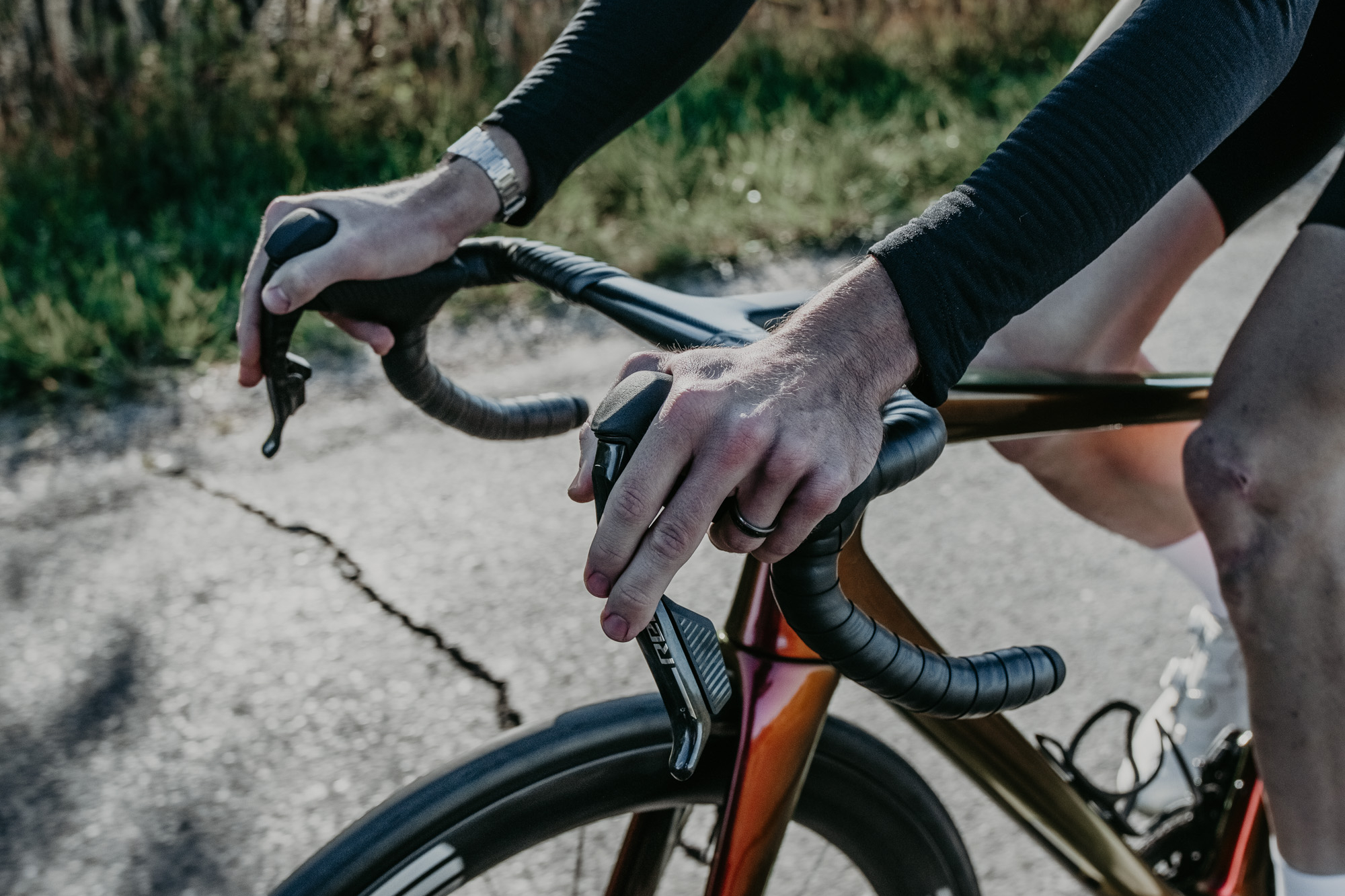
Enve’s range of carbon components are coveted for their clean aesthetics and their notable performance. But by making much of its gear in its US factory, the price was prohibitive for many. The SES AR handlebars are once such item, coming with a price tag of $1,200. Until now, that is.
The made in the US cockpit is still available, but is now named the SES AR Custom one-piece. It’s been joined by a matching bar that’s produced in its overseas factory where it makes its range of two-piece bars. This bar has adopted the existing SES AR name, while the retail price has almost been halved, to $750 / £850. The change of factory should also increase availability, too.
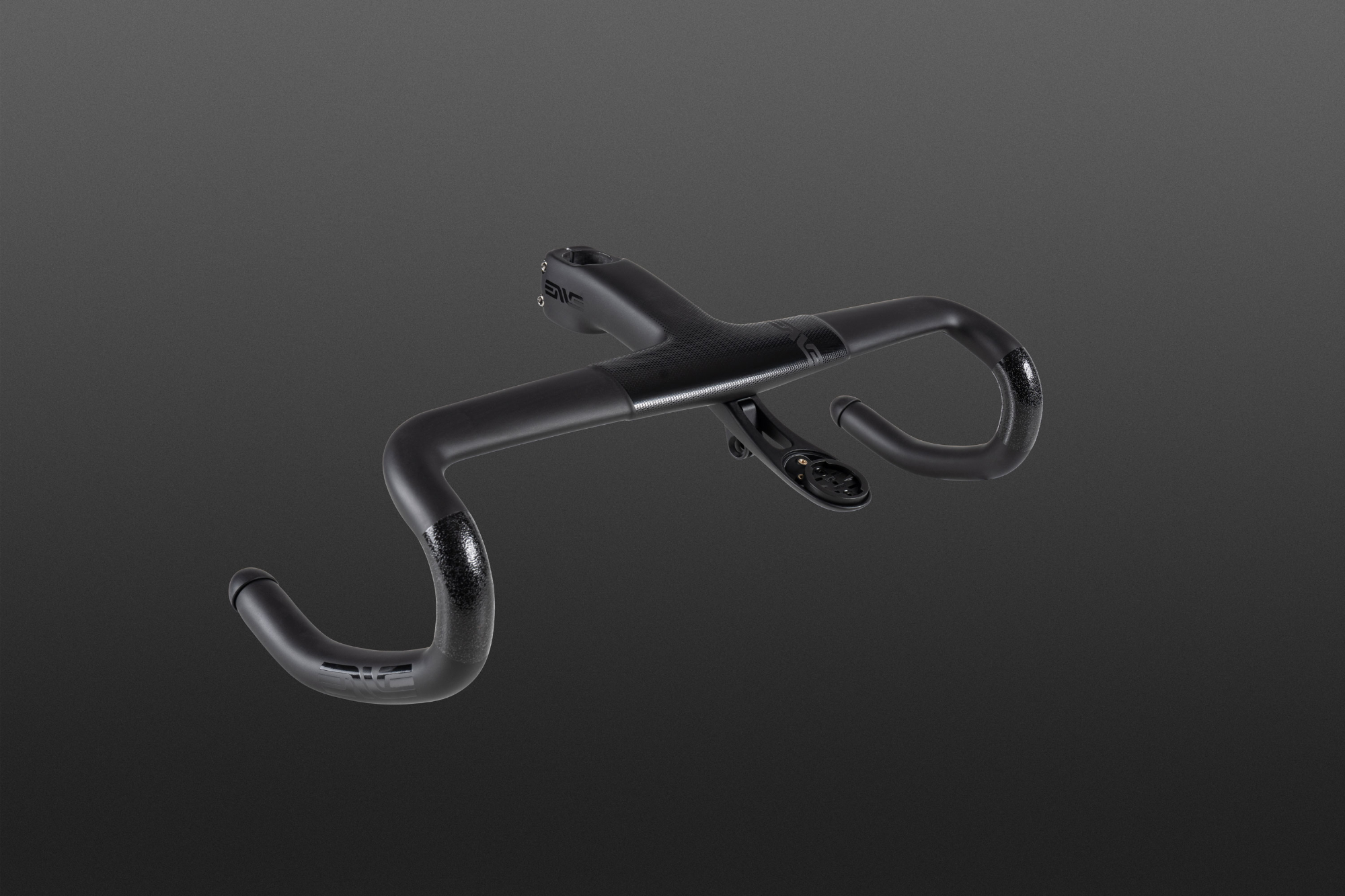
The bar’s design and specs remain, with an aero profile and compound-flare drops, offered in 20 size combinations. Claimed weight for a 40cm wide bar with a 110mm stem is 340g.
While it’s still a huge chunk of money for a cockpit, any time a premium brand seeks to address issues of affordability and supply should be saluted.
Pirelli Cinturato tyres
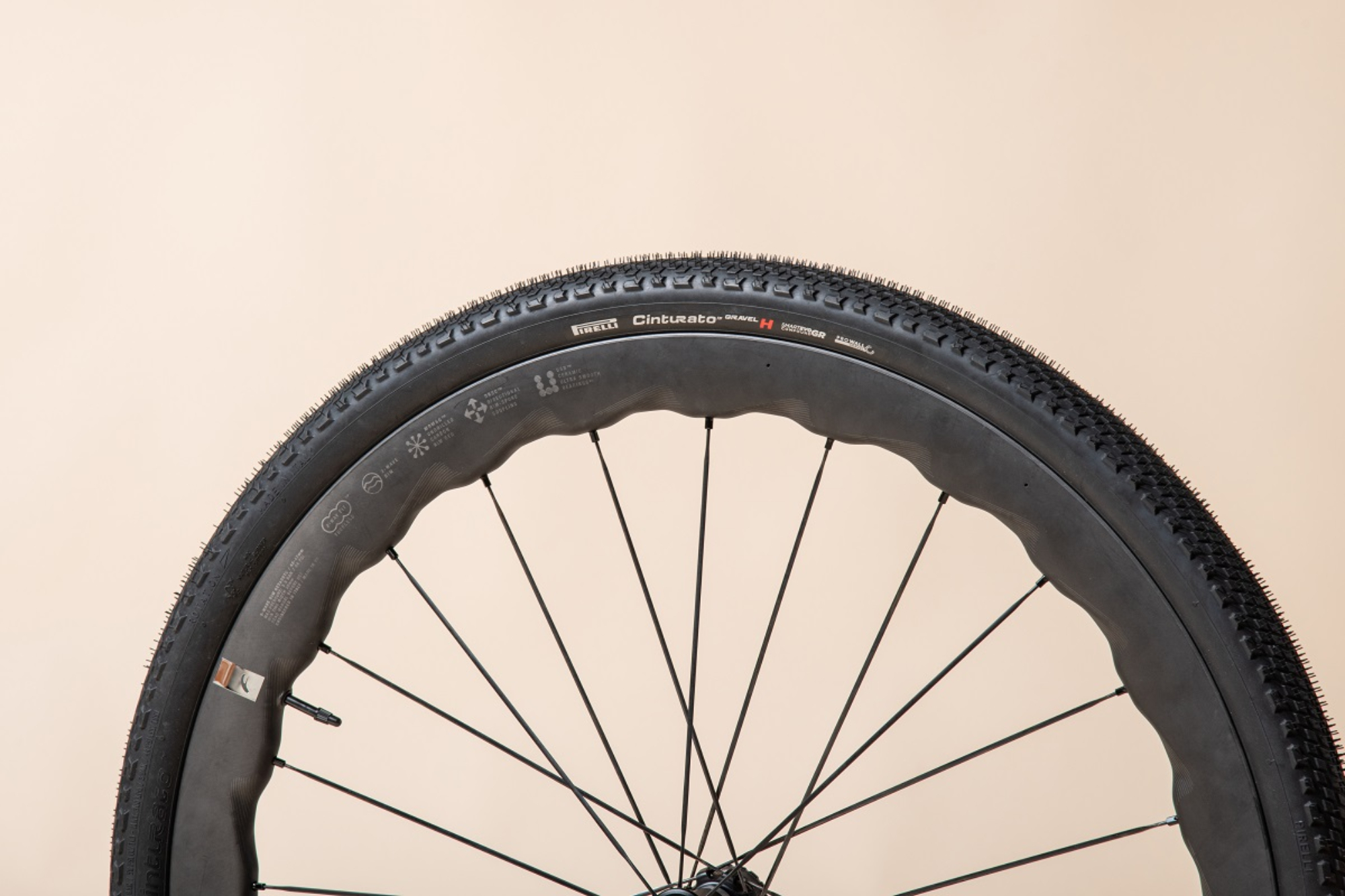
Pirelli has added to its Cinturato range of gravel tyres with the HP and P lines.
The High Performance line offers updated versions of the existing H and M models. Made in Pirelli’s Milan-Bollate plant they use FSC certified natural rubber and are designed, as the name states, at top-level performance. Details include a new SmartEVO GR compound and a 120 TPI casing with a protective ProWALL structure borrowed from the brand’s MTB tyres. The H is created for hardpacked surfaces, while the M is for mixed terrain. Both claim to deliver improved puncture resistance and reduced rolling resistance compared to the previous designs.
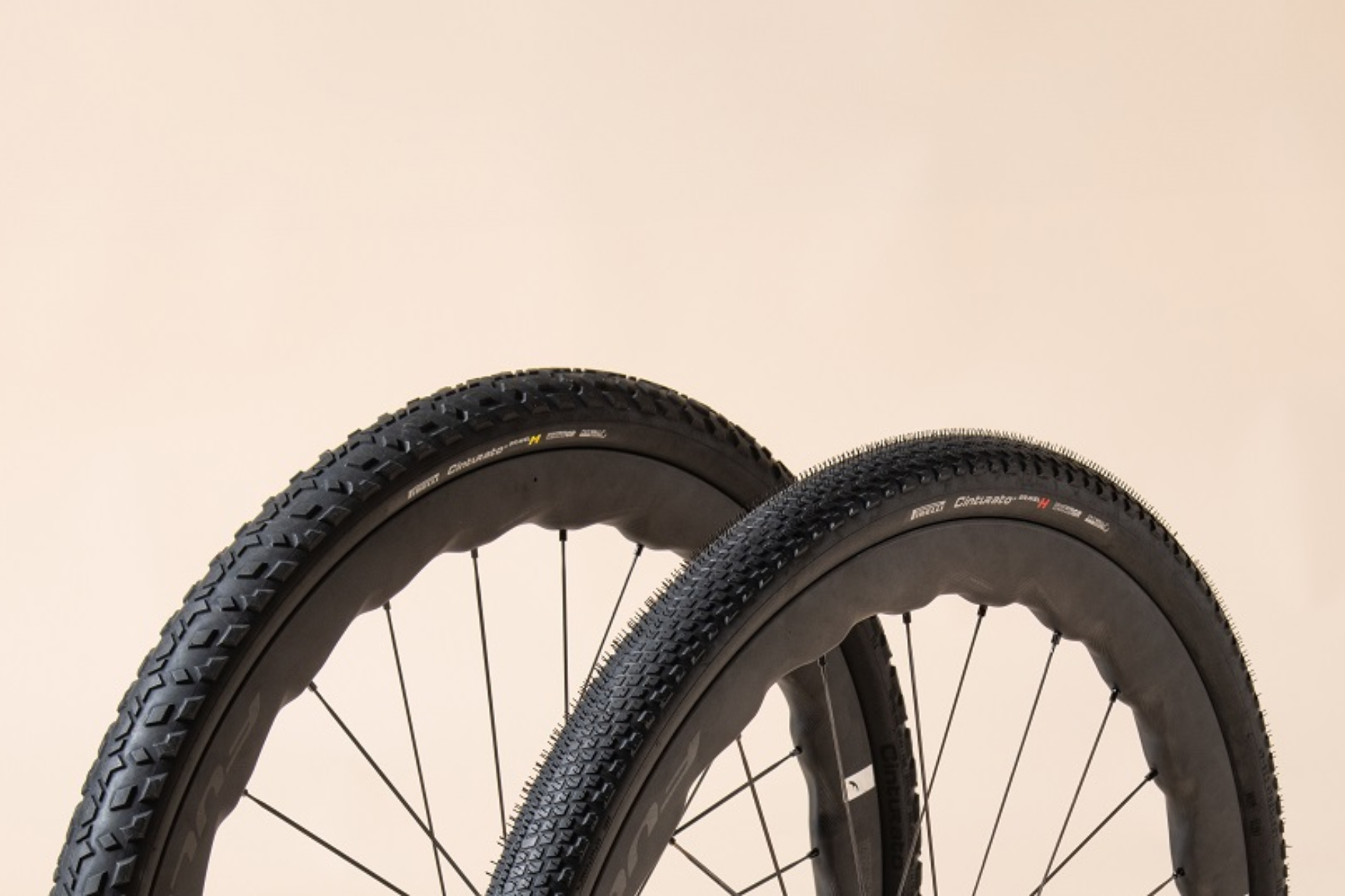
The Performance line features five models: the RH, the RM, the S, the H and the M. The first two are aimed at “expert riders”, while the S is for loose terrain. The RH and the RM are designed for the same conditions as those in the HP Line but, like all the Performance Line tyres, feature a 60 TPI casing.
All are available in 40mm and 45mm widths, with the HP tyres priced at $97.90 / £74.99 and the P tyres at $78.90 / £59.99.
Luke Friend has worked as a writer, editor and copywriter for over twenty five years. Across books, magazines and websites, he's covered a broad range of topics for a range of clients including Major League Baseball, Golf Digest, the National Trust and the NHS. He has an MA in Professional Writing from Falmouth University and is a qualified bicycle mechanic. He has been a cycling enthusiast from an early age, partly due to watching the Tour de France on TV. He's a keen follower of bike racing to this day as well as a regular road and gravel rider.
You must confirm your public display name before commenting
Please logout and then login again, you will then be prompted to enter your display name.